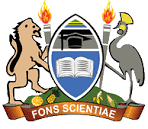Bachelor of Science in Physics
Introduction
A Bachelor of Science in Physics of Kisii University is an undergraduate
academic degree program that focuses on the study of the fundamental principles
governing the behavior of matter and energy in the universe. Physics is a
branch of science that seeks to understand the natural world at its most
fundamental level and is a cornerstone of modern scientific research and
technological development.
During a Bachelor of Science in Physics program, students typically engage in a combination of theoretical and practical coursework. They study topics such as classical mechanics, electromagnetism, thermodynamics, quantum mechanics, relativity, optics, and more. The program often includes laboratory work, where students gain hands-on experience conducting experiments and verifying theoretical concepts.
Here are some key aspects of a Bachelor of Science in Physics program:
- Core Concepts: Students develop a strong foundation in the principles of physics, exploring how matter and energy interact and the mathematical models used to describe these interactions.
- Mathematical Rigor: Physics heavily relies on mathematics to describe and predict natural phenomena. Students build and refine their mathematical skills, using calculus, differential equations, linear algebra, and other mathematical tools.
- Laboratory Work: Hands-on experimentation is a vital component of a physics degree. Students learn to design, conduct, and analyze experiments, enhancing their problem-solving and critical-thinking abilities.
- Theoretical Understanding: Students delve into various branches of physics, including classical mechanics (motion and forces), electromagnetism (electricity and magnetism), thermodynamics (heat and energy transfer), quantum mechanics (behavior of particles at the atomic and subatomic levels), and more.
- Interdisciplinary Connections: Physics has applications in diverse fields, from engineering to medicine, astronomy to material science. Students may explore interdisciplinary connections and the real-world implications of physics concepts.
- Computational Skills: Modern physics often involves complex simulations and computational modeling. Students may learn programming and numerical techniques to simulate physical systems and analyze data.
- Critical Thinking: Physics encourages analytical thinking and problem-solving skills. Students learn to approach complex problems methodically and derive logical solutions.
Career Paths and potential area of employment
A Bachelor of Science (B.Sc.) in Physics opens up a wide range of career paths, both within the field of physics itself and in various related industries. Here are some potential career paths for individuals with a degree in physics:
- Research Scientist: With a bachelor's degree in physics, you can work as a research scientist in academic, government, or industrial research settings. You might be involved in conducting experiments, analyzing data, and contributing to the advancement of scientific knowledge.
- Laboratory Technician: You could work as a laboratory technician in various industries, including electronics, materials science, and medical research. Your role would involve setting up experiments, operating equipment, collecting data, and maintaining lab equipment.
- Data Analyst: Physics graduates often have strong analytical and problem-solving skills, which are highly valued in data analysis and data science roles. You could work with companies to analyze and interpret data, make predictions, and provide insights for decision-making.
- Science Communication: If you enjoy explaining complex concepts to others, you might pursue a career in science communication. This could involve writing articles, creating videos, hosting podcasts, or working as a science journalist to make scientific information accessible to the public.
- Teaching: With further education and certification, you can become a high school physics teacher or even a college-level instructor. Teaching allows you to share your passion for physics and inspire the next generation of scientists.
- Engineering: Many physics graduates transition into engineering roles, especially those related to electronics, telecommunications, energy, and aerospace. Physics provides a strong foundation for understanding the underlying principles in these fields.
- Software Development: Physics graduates with programming skills can work in software development, especially in industries that require simulation and modeling, such as computer graphics, simulations, and computational physics.
- Financial Analysis: The quantitative and analytical skills acquired during a physics degree can be valuable in financial analysis roles. You could work in investment firms, analyzing market trends, risk assessment, and financial modeling.
- Medical Physics: If you're interested in healthcare, you could work in medical physics, which involves applying physics principles to areas like radiation therapy, medical imaging, and diagnostics.
- Environmental Science: Physics skills can be useful in understanding and addressing environmental issues. You could work on climate modeling, renewable energy research, or environmental monitoring.
- Space and Astronomy: If you're passionate about space, you might work in space agencies, observatories, or private companies focusing on space exploration, satellite development, or astrophysics research.
Entry Requirements for the Programme:
1. All candidates admitted to the B.Sc. In Physics degree programme must satisfy the minimum entry requirements stipulated in the common university entrance regulations.
2. The candidate must have passed the Kenya Certificate of Secondary Education (KCSE) with the minimum grades as indicated in the following subjects:
|
Physics: C+; |
Chemistry: C+; |
Mathematics: C+ |
3. Those holding qualifications equivalent to the above from institutions recognized by Kisii University (KSU) Senate may also be admitted.
4. Admission may also be offered to outstanding Diploma holders in Physical Sciences with a bias towards Physics and who have passed with a credit or above or their equivalents. Such cases will be considered on a case by case merit.
5. Holders of KCSE certificate or equivalent with a minimum of C+ and lacking cluster subjects (Physics and two science subjects as in (i) above) may be considered after bridging the failed subjects. The Candidates must score at least a C-plain in the subject they are bridging.
6. A holder of KACE certificate or equivalent with minimum of two principal passes and lacking O-level cluster subject grades. The candidate must score at least C-Plain in the subject they are bridging.
 Kisii University |
Kisii University |